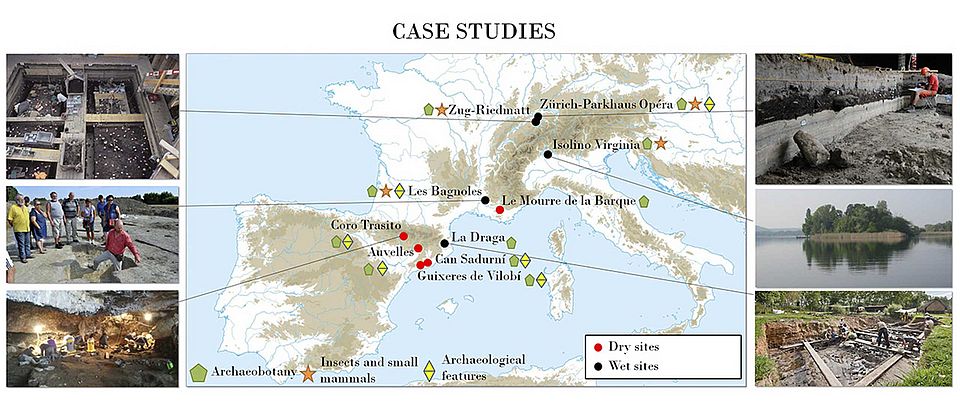Presentation

Study region and chronology
The geographic focus of the project is on the area from the Northwest Mediterranean region up to the Alpine Foreland. It includes the High Rhine valley, the Po valley, the Rhone valley and the Ebro valley. This area witnessed contacts between different farming traditions (the central European one and the Mediterranean one) from the beginning of the Neolithic onwards and is therefore an ideal case study area. While a great wealth of archaeobotanical data has been produced for the Alpine Foreland during the last decades, the situation is less ideal in the Mediterranean region. It is for this reason an important part of the project to investigate new sites that can make an essential contribution to our knowledge on changing farming practices during the Neolithic in the study region.
Our approach
AgriChange will perform new research in a selected number of key archaeological sites and focuses on those with waterlogged deposits – still including relevant dry sites. Waterlogged deposits are generally characterized by good preservation conditions of plant and animal remains, which translates into more diverse environmental proxy data than those obtained in most dryland sites. The oldest lakeshore site of the Alpine area, Isolino di Varese (Varese, Italy) is one of the most important sites studied within the project. It is a UNESCO World Heritage Site with an initial occupation dated to ca. 5.3 ka BCE with subsequent occupations in younger periods.
The topics of research within the project are several:
- Agrobiodiversity and food security
- Land use and crop husbandry methods
- Climate
- Chronology
